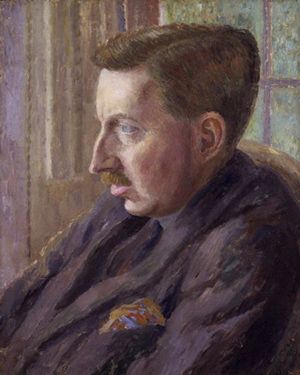Introduction
Reading the prompt
Let’s say you are getting ready to write an essay. You have all your materials ready. You were careful to get a good night’s sleep, and you ate a good breakfast. You went to school alert and confident. And then you read the prompt:
In “Tolerance,” E. M. Forster proposes that tolerance as a state of mind, rather than love, will better support a “civilized” future. Write an essay assessing Forster’s argument for tolerance over love in public affairs. Support your position with sufficient evidence from the text.
What do you do? Where do you begin?
First reexamine the prompt. Sit back, take a breath or two and say to yourself, “What exactly am I being asked to write?” You may object, “Shouldn’t I read Forster’s text first?” You could do that. It wouldn’t be a waste of time. But foremost you want to avoid the danger of misreading the prompt or only partially reading the prompt. You must write this essay in exactly the way the prompt is directing you, so before reading Forster’s text, you need to understand the prompt’s request. That way as you read the text, you can look for ways to respond.
If you only glanced at the prompt, it would be easy to think that Forster rejects love in human affairs. You say to yourself, “That’s crazy. Love is important.” But this would be your mistake, not Forster’s. He is saying something more specific: that love is not as good as tolerance to support a civilized future. He is talking strictly about public affairs, not personal.
The second danger to avoid is taking the wrong direction. The prompt asks you to address the claim that Forster makes. It doesn’t ask you for your own experiences with tolerance or love. Your experience may seep into your writing, but your main purpose is to assess Forster’s case.
We have been discussing this prompt now for several paragraphs. Without looking back, can you rewrite the prompt in your own words? Use your notes for the rewrite. Check your understanding when you are finished.
You can write the answers to questions in your notes.
Instructions for Using the Take Notes Tool
- Click the Take Notes button in the left Epsilen navigation menu to open the Take Notes popup page.
- You may edit the Title or leave it as the title of the course.
- Enter your notes in the Content box.
- Click the Save button. You may now refer to these notes whenever you open the Take Notes popup page.
Check your own words against the actual Forster prompt. Did you mention these three things?
- Forster contrasts love with tolerance as a basis for public affairs.
- Forster says tolerance should be preferred in public affairs.
- The prompt asks you to assess Forster’s argument
You should probably do this exercise every time you write an essay in response to a prompt. It doesn’t matter if you get it exactly right the first time since no one is going to look at it. What does matter is that you check your understanding against what the prompt actually says. This strategy will help you see what important information you omitted or misinterpreted and will help you not to be led astray.

Source: Chocolate bars, istockphotos
Many good students do poorly on essays because they do not take time to study the prompt.
Next step
Your next step should be to “chunk” the text—to divide it into sections according to the topic of each section. Read the text once without stopping, simply keeping the prompt in mind. Keep an eye out for problems in Forster’s argument. Read it a second time and chunk it. There are many ways of chunking a text. Different readers will divide it up in different ways and at different places. Generally each paragraph is a chunk. But not always. Look at the Forster text and label each chunk indicated.
For the next exercise, read through the entire essay carefully. Then open the graphic organizer and follow the directions. You can save, download, and print this file. Graphic Organizer Instructions
Tolerance
By E. M. Forster
(Originally released July 1941 on the British Broadcasting System)
1.) Surely the only sound foundation for a civilization is a sound state of mind. Architects, contractors, international commissioners, marketing boards, broadcasting corporations will never, by themselves, build a new world. They must be inspired by the proper spirit, and there must be the proper spirit in the people for whom they are working . . .
2.) What though is the proper spirit? . . . There must be a sound state of mind before diplomacy or economics or trade conferences can function. But what state of mind is sound? Here we may differ. Most people, when asked what spiritual quality is needed to rebuild civilization, will reply “Love.” Men must love one another, they say; nations must do likewise, and then the series of cataclysms which is threatening to destroy us will be checked.
3.) Respectfully but firmly, I disagree. Love is a great force in private life; it is indeed the greatest of all things: but love in public affairs does not work. It has been tried again and again: by the Christian civilizations of the Middle Ages, and also by the French Revolution, a secular movement which reasserted the brotherhood of man. And it has always failed. The idea that nations should love one another, or that business concerns or market boards should love one another, or that a man in Portugal should love a man in Peru of whom he has never heard—it is absurd, unreal, dangerous. It leads us into perilous and vague sentimentalism. “Love is what is needed,” we chant and then sit back, and the world goes on as before. The fact is we can only love what we know personally. And we cannot know much. In public affairs, in the rebuilding of civilization, something much less dramatic and emotional is needed, namely, tolerance. Tolerance is a very dull virtue. It is boring. Unlike love, it has always had a bad press. It is negative. It merely means putting up with people, being able to stand things. No one has ever written an ode to tolerance or raised a statue to her. Yet this is the quality which will be most needed after the war. This is the sound state of mind which we are looking for. This is the only force which will enable different races and classes and interests to settle down together to the work of reconstruction.
4.) The world is very full of people—appallingly full; it has never been so full before, and they are all tumbling over each other. Most of these people one doesn’t know, and some of them one doesn’t like; doesn’t like the color of their skins, say, or the shapes of their noses, or the way they blow them or don’t blow them, or the way they talk, or their smell, or their clothes, or their fondness for jazz, or their dislike of jazz, and so on. Well, what is one to do? There are two solutions. One of them is the Nazi solution. If you don’t like people, kill them, banish them, segregate them, and then strut up and down proclaiming that you are the salt of the earth. The other way is much less thrilling, but it is on the whole the way of the democracies, and I prefer it. If you don’t like people, put up with them as well as you can. Don’t try to love them: you can’t; you’ll only strain yourself. But try to tolerate them. On the basis of that tolerance a civilized future may be built. Certainly I can see no other foundation for the postwar world.
5.) For what it will most need is the negative virtues: not being huffy, touchy, irritable, revengeful. I have lost all faith in positive militant ideals; they can so seldom be carried out without thousands of human beings getting maimed or imprisoned. Phrases like “I will purge this nation,” “I will clean up this city,” terrify and disgust me. They might not have mattered when the world was emptier: they are horrifying now, when one nation is mixed up with another, when one city cannot be organically separated from its neighbors . . .
6.) I don’t then regard tolerance as a great eternally established divine principle, though I might perhaps quote “In my Father's house are many mansions” in support of such a view. It is just a makeshift, suitable for an overcrowded and overheated planet. It carries on when love gives out, and love generally gives out as soon as we move away from our home and our friends and stand among strangers in a queue for potatoes. Tolerance is wanted in the queue; otherwise we think, “Why will people be so slow?”; it is wanted in the tube, or “Why will people be so fat?”; it is wanted at the telephone, or “Why are they so deaf?” or conversely, “Why do they mumble?” It is wanted in the street, in the office, at the factory, and it is wanted above all between classes, races, and nations. It’s dull. And yet it entails imagination. For you have all the time to be putting yourself in someone else’s place. Which is a desirable spiritual exercise.

Source: Portrait of E. M. Forster, Dora Carrington, Wikimedia Commons
Now that you’ve practiced chunking, you can see that it’s simply a way to read more deeply and to quickly get a handle on the content of the text. This is important because, once you understand the text, you can focus on reacting to it. Understand first and then respond.